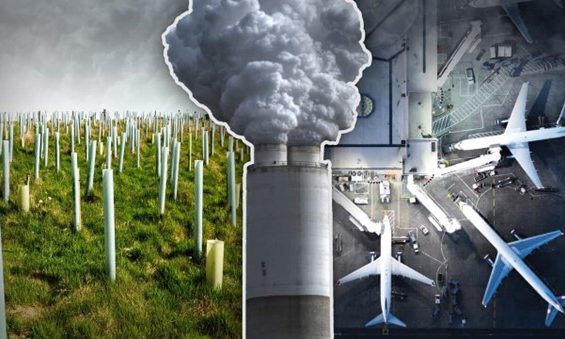
Is natural gas really a lower emitting fossil fuel?
2 March 2023
While it is true that combustion of methane produces approximately 50% less CO2 than burning coal for electricity, greenhouse gas emissions during the natural gas extraction, processing and transport lifecycle add significantly to pollution in the following ways[1]:
- discharging of CO2 separated as part of the extraction process (there may be a high concentrations of CO2 in some reservoirs – e.g. Browse Basin has 20%)
- fugitive emissions of methane into the atmosphere during well operations
- fugitive emissions of methane into the atmosphere during processing and transport processes
- liquefying methane for LNG export uses around 15% of the fuel
Gas extracted through fracking is highly likely to have higher levels of fugitive emissions because there are many more wells and points of failure.
Emissions of methane have a large impact on global heating. Methane has a substantially higher Global Warming Potential than carbon dioxide, so any methane leakage has a larger effect than burning it to create CO2. The latest climate research shows that methane has a Global Warming Potential around 85 times that of CO2 over a 20 year time frame. Earlier scientific literature measured the impact of Methane over 100 years, which is inappropriate given the urgency of the climate crisis. If methane fugitive emissions make up 3.2% of the total gas extracted, then global warming from burning fossil gas is equivalent to burning coal for electricity.
Methane fugitive emissions are poorly measured and accounted for. Currently, gas companies ‘estimate’ the amount of fugitive methane emitted. Technology around the monitoring of fugitive methane is rapidly maturing, and rigorous monitoring should be required of all gas producers. Government agencies also underestimate the Global Warming Potential of methane by a factor of four, using the outdated 100 year time frame.
Despite the previous arguments, proponents of natural gas use the narrative that gas can be a bulk (baseload) generation fuel to supplement or replace coal over the medium to long term. Reasons that this argument is faulty are:
- Renewables are now cheaper than fossil-fuelled generation
- Daytime solar PV generation is resulting in baseload generation being unnecessary
- There is no evidence that Australian gas exports displace the use of coal globally
However, in the short to medium term, fossil gas will have a valuable role as a fuel for balancing and backup generation for when the sun doesn’t shine and the wind doesn’t blow. In Western Australia, this will be only 10-15 % of current fossil fuel use. Over time, as battery storage becomes cheaper and more widespread, the need for gas will decrease further. In the longer term, renewable hydrogen may fuel gas turbines.
Fossil natural gas or methane isn’t cleaner than coal. When the full supply chain is considered, burning methane to make electricity produces approximately the same amount of greenhouse gases as burning coal.
There is no evidence that Australian gas exports displace the use of coal globally.
Small amounts of fossil gas will be required in the short to medium term as a fuel for balancing and backup generation, but this will decrease over time
Sustainable Energy Now Submission to the Western Australian Environmental Protection Agency Consultation on Greenhouse Gas Emissions Guidelines. Available at https://www.sen.asn.au/submissions.
Vorrath, S., AGL kills idea of gas as transition fuel: wind, solar + storage cheaper, in Renew Economy. 2017. https://reneweconomy.com.au/agl-kills-idea-of-gas-as-transition-fuel-wind-solar-storage-cheaper-63013/


Discussion